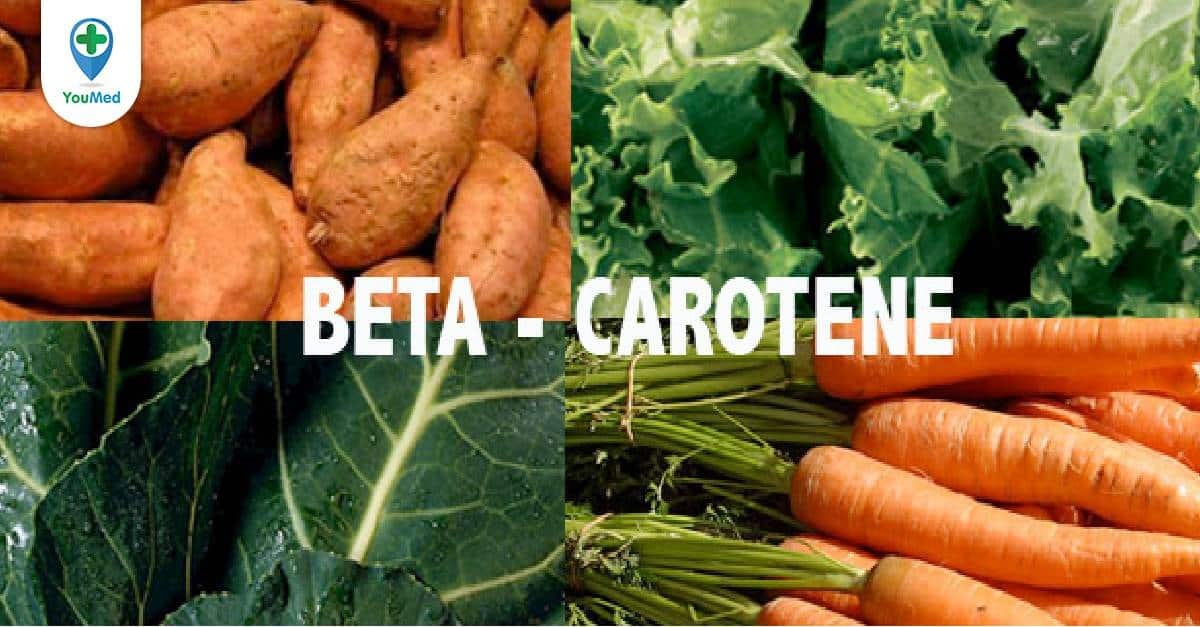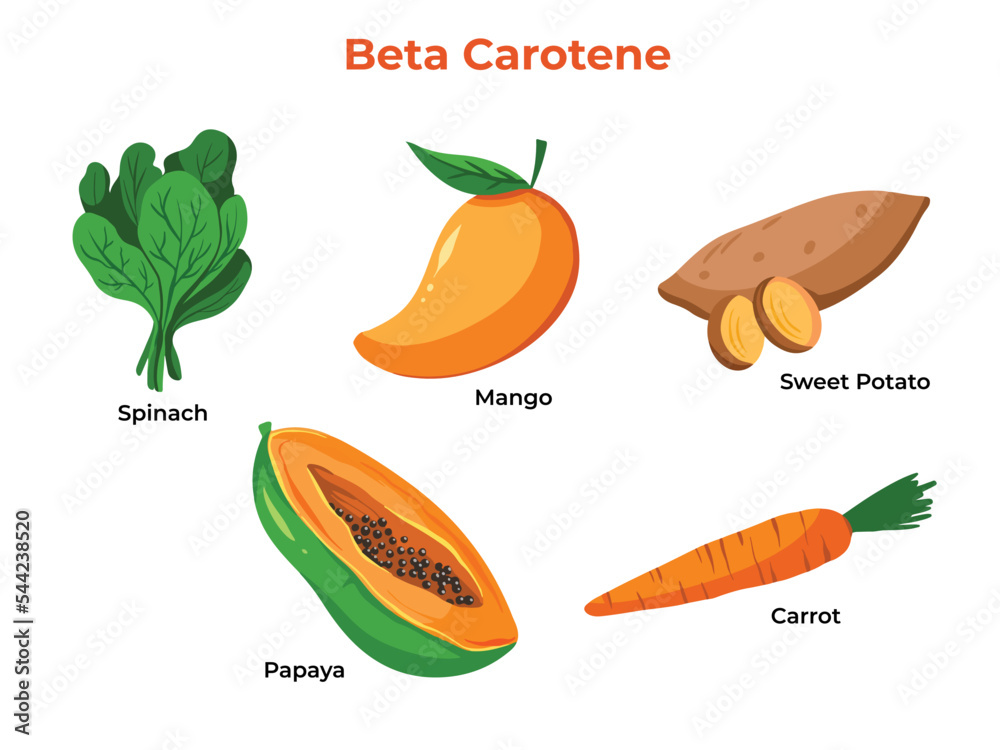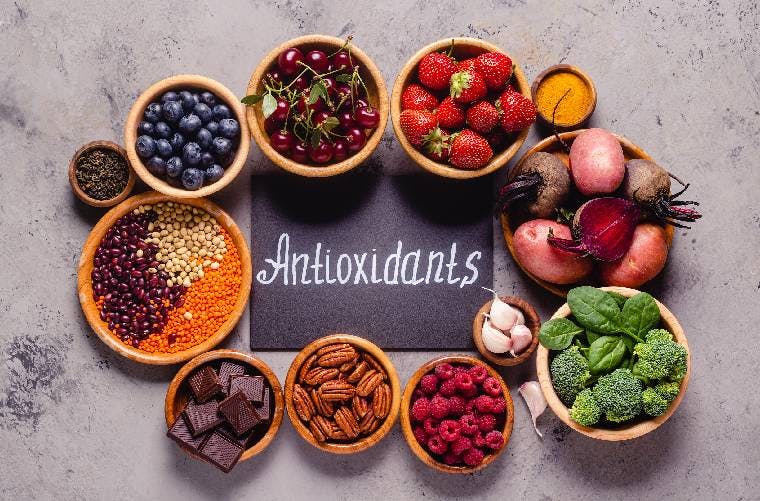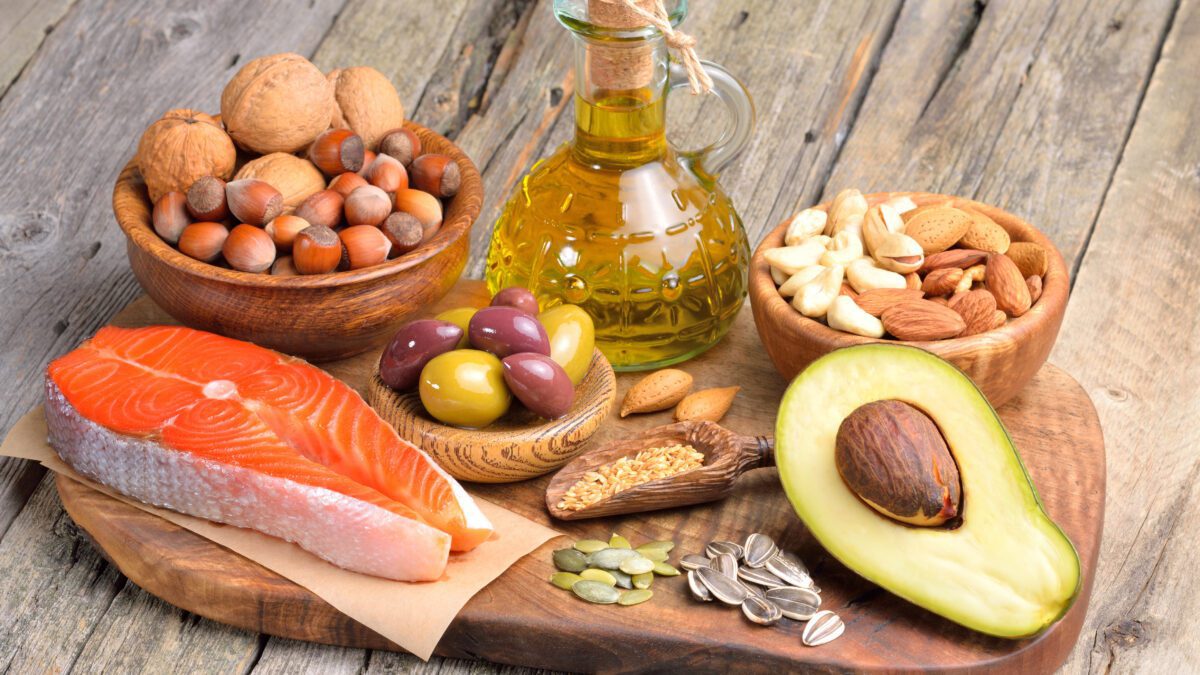Taking care of your skin is essential for maintaining its health and radiance. While skincare products play a vital role in our daily routines, the food we consume also plays a significant role in nourishing our skin from within. One such nutrient that promotes skin health is beta-carotene. Beta-carotene is a precursor to vitamin A and acts as a powerful antioxidant, protecting the skin from damage and promoting its overall well-being. In this article, we will explore five helpful pieces of information about foods high in beta-carotene and their benefits for skin health.
1, Beta-Carotene and Skin Health.
Beta-carotene is a type of carotenoid, which is a pigment found in various fruits and vegetables. It is responsible for the vibrant colors of foods like carrots, sweet potatoes, and spinach. When consumed, beta-carotene is converted into vitamin A in the body.
Vitamin A is an essential nutrient that plays a crucial role in maintaining healthy skin. It supports various aspects of skin health, including cell growth, repair, and the production of sebum. Here's how beta-carotene and vitamin A contribute to skin health:
Cell Growth and Repair: Vitamin A is involved in the growth and development of all bodily tissues, including the skin. It helps in the formation and maintenance of skin cells, promoting healthy skin growth and repair. This can contribute to a smoother and more youthful appearance.
Antioxidant Properties: Beta-carotene and vitamin A have antioxidant properties, which means they help protect the skin against damage caused by harmful free radicals. Free radicals can accelerate skin aging and contribute to various skin issues. Antioxidants neutralize these free radicals, reducing their potential damage.
Sebum Production: Sebum is a natural oil produced by the sebaceous glands in the skin. It helps moisturize and lubricate the skin, preventing dryness and maintaining its elasticity. Vitamin A promotes the production of sebum, which contributes to keeping the skin moisturized and supple.
Skin Conditions: Adequate intake of beta-carotene and vitamin A may also help manage certain skin conditions. For example, vitamin A derivatives, such as retinoids, are commonly used in the treatment of acne. They help regulate the growth of skin cells and reduce inflammation, leading to improved acne symptoms.
It's important to note that while beta-carotene is converted into vitamin A in the body, excessive intake of preformed vitamin A (found in animal-based foods and supplements) can have adverse effects on health, including skin health. It's generally recommended to obtain vitamin A from beta-carotene-rich foods, as the body converts beta-carotene into vitamin A as needed.
A well-balanced diet that includes a variety of fruits and vegetables can provide you with an adequate amount of beta-carotene and other essential nutrients for healthy skin. However, if you have specific concerns about your skin health or are considering supplementation, it's best to consult with a healthcare professional or a dermatologist for personalized advice.
2, Top Food Sources of Beta-Carotene.
Many fruits and vegetables are excellent sources of beta-carotene. Here are some top examples:
Carrots: Carrots are one of the richest sources of beta-carotene. They are not only nutritious but also versatile, making them easy to incorporate into your diet.
Sweet Potatoes: Sweet potatoes are another fantastic source of beta-carotene. They are also rich in fiber, vitamins, and minerals, making them a healthy choice for overall nutrition.
Spinach: Spinach is a leafy green vegetable that contains a good amount of beta-carotene. It's also packed with other essential nutrients like iron, folate, and vitamin K.
Kale: Kale is another leafy green vegetable that is known for its nutritional density. It's a great source of beta-carotene as well as vitamins C and K.
Apricots: Apricots are a delicious fruit that provides a significant amount of beta-carotene. They are also rich in fiber and vitamin C.
Mangoes: Mangoes are not only juicy and flavorful but also a good source of beta-carotene. They are also packed with vitamin C and dietary fiber.
Red Bell Peppers: Red bell peppers are vibrant and sweet vegetables that are high in beta-carotene. They are also an excellent source of vitamin C.
Butternut Squash: Butternut squash is a winter squash variety that is rich in beta-carotene and other important nutrients like vitamin C, potassium, and fiber.
Other fruits and vegetables that contain beta-carotene include papaya, cantaloupe, pumpkin, watermelon, tomatoes, and green leafy vegetables like collard greens and mustard greens.
Incorporating these beta-carotene-rich foods into your diet can help ensure an adequate intake of this important nutrient, along with a range of other beneficial vitamins, minerals, and antioxidants. Remember to consume a variety of fruits and vegetables to obtain a diverse array of nutrients for optimal health.
3, Antioxidant Benefits.
Here are five helpful pieces of information about foods high in beta-carotene for skin health:
Beta-Carotene and Skin Health: Beta-carotene is a type of carotenoid, which is a pigment responsible for the vibrant colors of certain fruits and vegetables. When consumed, beta-carotene is converted into vitamin A in the body. Vitamin A plays a crucial role in maintaining healthy skin, as it supports cell growth, repair, and the production of sebum, which keeps the skin moisturized.
Top Food Sources of Beta-Carotene: Several fruits and vegetables are excellent sources of beta-carotene. Some top examples include carrots, sweet potatoes, spinach, kale, apricots, mangoes, red bell peppers, and butternut squash. These foods are not only rich in beta-carotene but also provide a wide range of other essential vitamins, minerals, and antioxidants.
Antioxidant Benefits: Beta-carotene acts as an antioxidant in the body, helping to neutralize harmful free radicals. Free radicals can cause oxidative stress, which can damage skin cells and contribute to premature aging. By incorporating beta-carotene-rich foods into your diet, you can help protect your skin from the damaging effects of free radicals.
Enhanced Absorption with Healthy Fats: Beta-carotene is a fat-soluble compound, meaning it requires dietary fat for optimal absorption. To maximize the absorption of beta-carotene from your meals, consider pairing beta-carotene-rich foods with healthy fats such as olive oil, avocado, nuts, and seeds. For example, drizzling some olive oil over a spinach salad or adding avocado slices to your carrot sticks can help increase beta-carotene absorption.
Variety and Balance: While beta-carotene is beneficial for skin health, it's important to maintain a well-rounded diet and consume a variety of nutrients for overall skin health. Incorporating a range of colorful fruits and vegetables into your meals ensures that you obtain a diverse array of antioxidants, vitamins, and minerals that support skin health and general well-being.
Remember, while consuming foods high in beta-carotene is beneficial for skin health, it's also essential to maintain a healthy lifestyle, protect your skin from excessive sun exposure, stay hydrated, and follow a balanced skincare routine for optimal skin health.
4, Enhanced Absorption with Healthy Fats.
You're correct that beta-carotene is a fat-soluble compound, and consuming it with healthy fats can enhance its absorption in the body. Including dietary fat along with beta-carotene-rich foods can help optimize the absorption and utilization of this beneficial compound. Here's why pairing beta-carotene with healthy fats is advantageous:
Improved Bioavailability: Dietary fats enhance the absorption of fat-soluble compounds like beta-carotene. When consumed together, beta-carotene and fats form micelles, which are small structures that facilitate the absorption of fat-soluble nutrients in the digestive system. The presence of dietary fats helps ensure that beta-carotene is effectively absorbed and utilized by the body.
Nutrient Synergy: Pairing beta-carotene-rich foods with healthy fats not only improves beta-carotene absorption but also provides additional nutritional benefits. Healthy fats, such as those found in olive oil, avocado, nuts, and seeds, contain important nutrients like vitamin E, which is itself an antioxidant. This combination of nutrients works synergistically to support overall skin health and provide a more comprehensive range of antioxidant protection.
Enhanced Flavor and Satisfaction: Adding healthy fats to beta-carotene-rich meals can enhance their flavor and make them more satisfying. This can contribute to a more enjoyable eating experience and help you feel satiated. Incorporating sources of healthy fats can also improve the palatability and absorption of fat-soluble vitamins, including beta-carotene.
Here are some practical examples of combining beta-carotene-rich foods with healthy fats:
Sautéing carrots or spinach in a small amount of olive oil.
Adding avocado slices or a sprinkle of nuts/seeds to a salad containing beta-carotene-rich vegetables.
Blending a smoothie with fruits like mango or apricot along with a tablespoon of nut butter or a handful of seeds.
Roasting butternut squash with a drizzle of olive oil.
Remember that moderation is key when incorporating fats into your diet, as they are calorie-dense. Aim for healthier fat sources and be mindful of portion sizes.
By combining beta-carotene-rich foods with healthy fats, you can optimize the absorption of beta-carotene and enhance its beneficial effects on skin health and overall well-being.
5, Variety and Balance.
Maintaining a well-rounded diet that includes a variety of nutrients is crucial for overall skin health and general well-being. While beta-carotene is beneficial for skin health, it's important to consume a diverse range of fruits, vegetables, and other nutrient-rich foods to obtain a wide array of essential nutrients. Here's why variety and balance are important for optimal skin health:
Diverse Nutrient Profile: Different fruits, vegetables, and other food groups provide a variety of antioxidants, vitamins, minerals, and phytochemicals. Each nutrient plays a unique role in supporting skin health and overall well-being. By consuming a variety of foods, you ensure that you're getting a diverse nutrient profile that can contribute to various aspects of skin health.
Synergistic Effects: Nutrients often work together synergistically, meaning their combined effects are more significant than when consumed individually. By incorporating a variety of foods, you increase the chances of obtaining different combinations of nutrients that can have enhanced benefits for your skin and overall health.
Adequate Micronutrient Intake: Skin health is not solely dependent on a single nutrient like beta-carotene. Consuming a variety of foods helps ensure that you're meeting your body's requirements for essential vitamins (such as vitamin C, vitamin E, and vitamin D), minerals (like zinc and selenium), and other important micronutrients that support skin health and function.
Balanced Nutrition: A balanced diet provides the necessary macronutrients (carbohydrates, proteins, and fats) along with micronutrients. Each macronutrient contributes to overall skin health, and an imbalance in any of them can affect the skin's appearance and function. A well-rounded diet helps maintain this balance and supports overall skin health.
By incorporating a wide range of colorful fruits, vegetables, whole grains, lean proteins, and healthy fats into your meals, you can obtain a diverse array of nutrients that promote skin health and overall well-being. Remember to choose whole, minimally processed foods whenever possible to maximize the nutrient content.
Additionally, staying well-hydrated, practicing good skincare habits, managing stress levels, and avoiding excessive sun exposure are also important factors in maintaining healthy skin.
It's always a good idea to consult with a healthcare professional or registered dietitian for personalized advice on maintaining a well-rounded diet that suits your specific needs and goals.
Incorporating foods rich in beta-carotene into your diet is a natural and effective way to support the health and vitality of your skin. The vibrant colors of fruits and vegetables, such as carrots, sweet potatoes, spinach, and apricots, indicate their high beta-carotene content. By consuming these foods, you not only provide your body with the necessary nutrients for maintaining healthy skin but also gain the benefits of other essential vitamins, minerals, and antioxidants they contain. Remember to combine beta-carotene-rich foods with healthy fats to enhance absorption and maintain a balanced diet that supports overall skin health. By nurturing your skin from the inside out, you can achieve a natural glow and long-term skin radiance.





Comments
Post a Comment